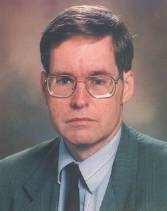June 1999
Consistency
By Michael J. Katin, MD
You can tell you've gone to too many graduations and heard too many valedictory addresses when you can't help using a quotation in your first paragraph. To put it into the standard format: "The great philosopher, Ralph Waldo Emerson, said, QUOTE, 'Consistency is the hobgoblin of small minds.'" The valedictory speech commonly misstates the reference, always refers to one having "said" something even if it was only written, and the QUOTE is always emphasized. The phantom UNQUOTE is nearly never used.
What does this have to do with anything? Why do the readers looking up this site to find the continuation of the JCAHO/ACR/ACRO inspection story have to wait until next month? How often do you see the word "hobgoblin" in print? Twice so far, and wouldn't it make a great name for a treatment planning system? But to get to the topic, this opinion column has now gone through another half year without having missed a month (30 consecutive months).
Consistency is still important in our profession as with most things in life. It's fine to be able to put out extra effort from time to time when absolutely necessary, but it is those specialists who can always be depended upon to be available to patients and referring physicians, to show up to conferences, and to participate in all the numerous but necessary components of treatment planning and management, who will continue to have viable practices. We are constantly beset by interlopers who can put on a good show for six months and then move on to their next project. Even in established practices, trends can develop that can erode the direct relationship with patients and other physicians that allows us to continue to survive these onslaughts. When it becomes common for a given patient to end up seeing three or four radiation oncologists during the course of the treatment, sometimes that allows for additional input but more commonly undermines the personal relationship that is critically important. Most referring physicians can't tell the difference between treating with cobalt-60 versus high-energy photons, let alone have any idea what IMRT is, but they can be negatively imprinted when they have trouble finding out who's treating their patient and can't reach that radiation oncologist easily.
It can become tedious to do all the necessary components of one's job while avoiding the more interesting distractions, but that's life. Remember, Roger Maris hit 61 home runs in a season and hasn't made it into the Hall of Fame, and Nellie Fox hit a bunch of singles for over twenty years and did make it in. Also remember that both of them died of cancer. So what's the conclusion? As the great philosopher, Woody Allen, said, QUOTE, "Ninety percent of life is just showing up."email: mkatin@radiotherapy.com
